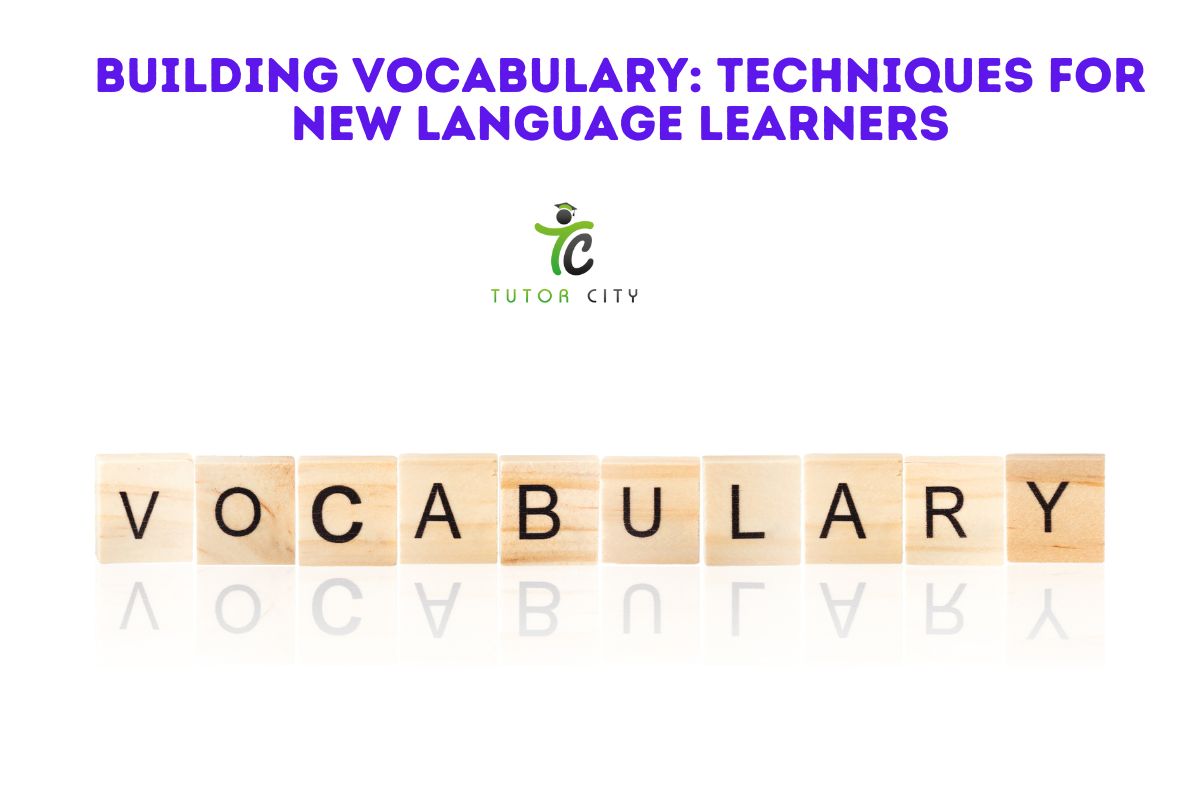
- Published by: Tutor City
- March 04, 2024
- Education
Techniques For Learning A New Language Effectively
So, you've decided to learn a new language. You aren’t alone in this journey. With the proliferation of gamified language learning apps, learning has become more accessible, and many are taking advantage of it.
For example, a market leader reported 13.8 million downloads in January 2023 alone. This shows that more and more people are trying to learn a new language every year.
For the new language learner, seeing that vocabulary book with thousands of words can feel overwhelming. How does one even begin remembering so many complex words and meanings? Your vocabulary cannot be built in a day. However, with some effective strategies added to your daily routine, harnessing a strong vocabulary in your new language is completely achievable over time.
Here are some of the top techniques that’ll have you expanding your vocabulary arsenal in no time:
Use flashcards
Flashcards may seem old school, but they are still an indispensable tool in any type of learning. A study among elementary student who are learning English vocabulary proved this as their motivation to learn increased by 76.6% after the implementation of flashcards in classes. There was also improvement seen in language mastery with the use of this tool. A flashcard generator can make this process even more convenient and personalized.
So, as someone who’s trying to learn a new language, you can treat flashcards as your new language-learning friend. Simply get index cards and write the new vocabulary word on one side, with the word's translation or definition on the other. Shuffle through the cards whenever you have some spare minutes—while waiting for coffee or during commercial breaks.
Test your memory by seeing if the word in the new language triggers your brain to remember and call out its meaning in your native language. Language-learning apps also have digital flashcard features. The key is repetition through games like flashcards to get those vocabulary words cemented.
Get visual with household objects
Another way to hammer in vocabulary words is by labelling common household objects with sticky notes and writing the word in your target language on them. Every time you open the fridge, get reminded of how to say milk or eggs in your newly acquired dialect. See the TV and reinforce the terms for couch or coffee table.
Over days and weeks, this labelling of everyday objects surrounding you’ll help solidify the direct associations between the words and objects in your memory. It also assists with driving vocabulary into long-term memory through the context clues of being able to observe and interact with the object itself.

Identifying word roots
An efficient tactic for retaining vocabulary is studying word roots. Nearly all languages have root words that act as the common "stem" in a family of words.
For example, in Japanese language learning, the root word 'hai,' meaning 'yes,' is the stem for similar words like 'haiiro,' meaning 'gray,' and 'haihai' meaning 'frequently.'
Recognizing these roots plus prefixes (parts added to the start of words) and suffixes (end parts) can help you break down and decipher meanings more readily. Instead of memorizing individual words, you can categorize vocabulary into families that share common stems and meanings. Understanding patterns through breakdowns helps facilitate learning and retention.
Listen to music and podcasts
A recent survey on language learners discovered that over 80% of them believe that listening to music in their target language helps improve pronunciation, vocabulary, and grammar skills. Additionally, 36.2% of respondents felt that music aids in communicating more fluently overall.
As with reading, start with 'easier' listening content aimed at language learners before transitioning to native content. For example, listen to a Spanish learning podcast before trying out a fast-talking native soap opera.
Use that word right away
Here's another useful tip—when you discover a new vocabulary word through flashcards or reading, make sure to try using it right away in a sentence, either written or spoken aloud. This application and usage of your newly acquired vocabulary reinforce both the meaning and the context immediately rather than it lingering unused in abstract memory.
Prioritize high-frequency words
When beginning vocabulary memorization, it’s smart to prioritize the most used words first. These include numbers, days of the week, colors, common verbs (to eat, drink, walk), etc. Building this base vocabulary gives you the tools to start constructing basic sentences and phrases to converse informally.
Moving on, you can expand the category by category—school and office terms, food and household items, technology, and business terms. Frequency dictionaries are a useful resource guiding learners on which word groups to focus vocabulary building upon first. Remember vocabulary like real estate—it's all about location, location, location when it comes to what words you should be mastering first.

Keep a vocabulary journal
Another approach is keeping a designated vocabulary journal. Maintain an ongoing list of new words alongside key details that will cement understanding over time—the definition, a contextual sentence demonstrating usage, words with similar meaning, visual associations, idiomatic expressions featuring the word, antonyms, and synonyms. Revisit previous pages periodically to reinforce what you have learned.
In closing
Learning a new language—be it one-on-one tutoring or using an online language learning platform—is somehow a long journey. But with some consistent effort using the techniques highlighted, your vocabulary will be increasing in leaps and bounds before you know it! Trust the process, stay motivated on your path to fluency by setting realistic goals, and soon, you'll be unlocking amazing new worlds through your ever-improving vocabulary in your chosen language and connecting with new cultures along the way.






